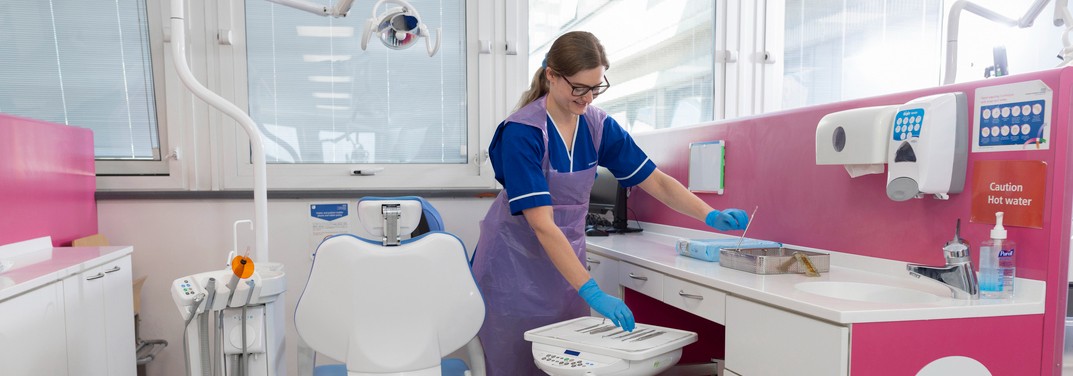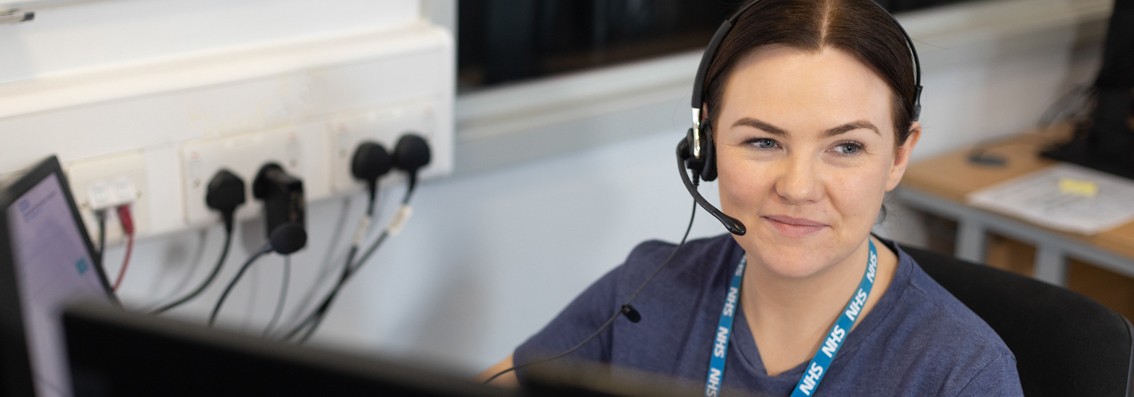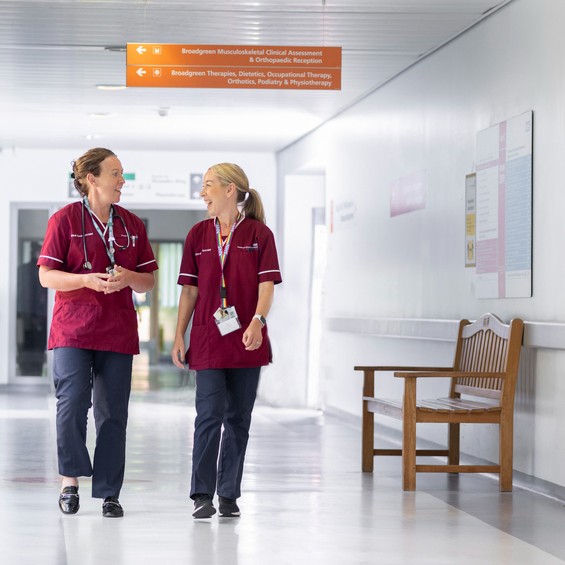Working in nursing, no two days are the same. It is one of the most dynamic and rewarding roles the NHS has to offer. With ongoing education, training and support from colleagues throughout LUHFT, you will be able to make the role your own.
What roles are available in Nursing?
Registered Nurse
As a registered nurse, you’ll work as part of a multidisciplinary team providing direct patient care.
No two days are the same. Depending on what type of nursing you choose to specialise in, you could spend your time helping support people with learning disabilities, providing end of life care or saving lives in our emergency departments.
As your career progress, you could specialise in theatre nursing, or you could take part in further postgraduate studies to become a more senior nurse, such as a ward manager, sister or matron.
The most common route into nursing is by completing a nursing degree. However, there are other routes available, including nursing apprenticeship degrees and nursing associate roles.
Entry requirements for nursing degree courses vary because each university sets its own entry criteria, but you are likely to need at least two (usually three) A-levels or equivalent qualifications at level 3, plus supporting GCSEs including English, maths and a science (usually biology or human biology). Contact universities directly to find out whether qualifications equivalent to A-levels or GCSEs are acceptable.
Your standard working week will be around 37.5 hours and may include a mix of shifts, such as nights, early starts, evenings and weekends. As a trainee nursing associate, you’ll usually be paid on band 3 of the Agenda for Change pay system, with qualified nursing associates usually employed on band 4.You’ll also have access to our generous pension scheme and health service discounts, as well as 27 days of annual
leave, plus bank holidays, which increases the longer you’re in service.
To discover more additional benefits unique to Liverpool University Hospitals NHS Foundation Trust, please visit our staff benefits page.
Nursing Associate
Your skills and responsibilities will vary, depending on the care setting you work in. Your duties are likely to include:
- Undertaking clinical tasks including venepuncture and ECGs
- Supporting individuals and their families and carers when faced with unwelcome news and life-changing diagnoses
- Performing and recording clinical observations such as blood pressure, temperature, respirations and pulse
- Discussing and sharing information with registered nurses on a patient's condition, behaviour, activity and responses
- Ensuring the privacy, dignity and safety of individuals is maintained at all times
- Recognising issues relating to safeguarding vulnerable children and adults.
To begin your training as a nursing associate, you’ll need GCSEs grade 9 to 4 (A to C) in maths and English, or Functional Skills Level 2 in maths and English. You'll also need to show that you can study for a foundation degree level and complete the Nursing Associate Apprenticeship programme.
As a newly qualified nurse, you’ll start as band 4 on the Agenda for Change pay system.
You’ll also have access to our generous pension scheme and health service discounts, as well as 27 days of annual leave, plus bank holidays, which increases the longer you’re in service.
To discover more additional benefits unique to Liverpool University Hospitals NHS Foundation Trust, please visit our staff benefits page.
You'll undertake academic learning one day a week and work-based learning the rest of the week.
It is very important to plan and manage the competing demands of your job role, study and placements.
You'll develop an understanding of all elements of nursing and caring for individuals with conditions such as dementia and learning disabilities/difficulties.












